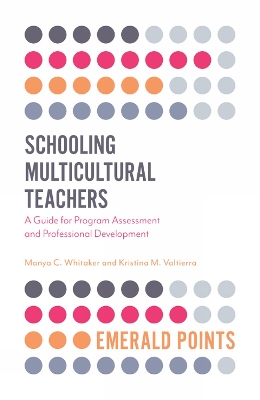Emerald Points
1 total work
The cultural identities of teachers inevitably influence the interactions they have with their students. These relationships, in turn, impact teaching and learning processes. Many low-income, racial, ethnic, and linguistic minority students are failing to receive the same quality of education as their more privileged counterparts.Supported by over 20 years of research, this book offers guidance for enhancing teachers' inclusive instructional practices by using the Dispositions for Culturally Responsive Pedagogy Scale (DCRPS). Developed by the authors, this is the only validated scale that measures the diversity-related beliefs, values, and attitudes that underpin multicultural teaching practices. The DCRPS measures three domains: Dispositions for Community, Dispositions for Social Justice, and Dispositions for Praxis.
Schooling Multicultural Teachers offers a historical overview of the multicultural education context, followed by practical examples of how the DCRPS can support program evaluation, as well as guide pre-service and in-service teacher development across diverse programs and demographic contexts. Educators are provided with examples of how to interpret DCRPS responses, how to combine the DCRPS with other resources, and how to customize professional development that builds on teachers' dispositional strengths while also addressing community-specific needs.
By offering a resource for program assessment and teacher development, this book is an invaluable text for education administrators, professional development coordinators, and teacher educators.
Schooling Multicultural Teachers offers a historical overview of the multicultural education context, followed by practical examples of how the DCRPS can support program evaluation, as well as guide pre-service and in-service teacher development across diverse programs and demographic contexts. Educators are provided with examples of how to interpret DCRPS responses, how to combine the DCRPS with other resources, and how to customize professional development that builds on teachers' dispositional strengths while also addressing community-specific needs.
By offering a resource for program assessment and teacher development, this book is an invaluable text for education administrators, professional development coordinators, and teacher educators.
